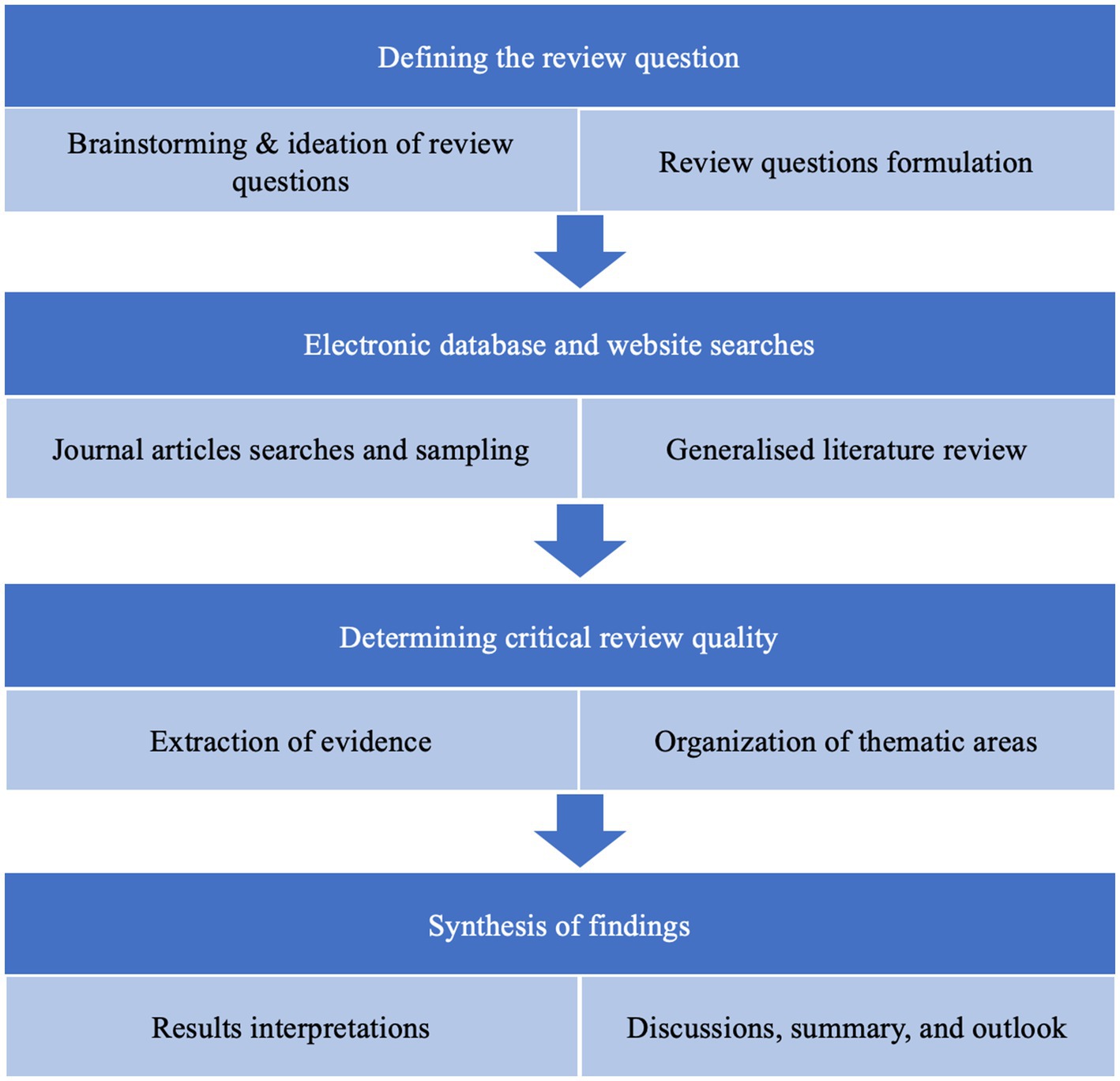Global Supply Chain Management BPO Market Report: Emphasizing Sustainable Development Goals (SDGs)
Introduction
The global Supply Chain Management Business Process Outsourcing (BPO) market is experiencing significant growth, driven by the increasing demand for operational efficiency, cost reduction, and innovation in supply chain operations. This report highlights the market’s growth trajectory, key drivers, segmentation, regional dynamics, and the critical role of Sustainable Development Goals (SDGs) in shaping the future of supply chain outsourcing.
Market Overview and Growth Drivers
The Supply Chain Management BPO market is projected to grow at a compound annual growth rate (CAGR) of 8.6%, increasing from US$ 32.5 billion in 2025 to US$ 58 billion by 2032. This growth is fueled by companies outsourcing supply chain functions such as inventory management, procurement, order processing, logistics, and customer service to focus on core competencies while reducing costs and improving service quality.
Key Growth Drivers
- Increasing adoption of cloud-based technologies
- Rising demand for real-time data analytics
- Growing need for flexible and scalable supply chain solutions
- Shift towards cost-efficient business models
- Evolving customer expectations for faster delivery times
Alignment with Sustainable Development Goals (SDGs)
- SDG 8 (Decent Work and Economic Growth): By promoting outsourcing, companies enhance operational efficiency and create employment opportunities in emerging markets.
- SDG 9 (Industry, Innovation, and Infrastructure): Adoption of advanced technologies such as AI and cloud computing fosters innovation and resilient infrastructure in supply chain management.
- SDG 12 (Responsible Consumption and Production): Sustainable supply chain practices reduce waste and optimize resource use, contributing to responsible production.
- SDG 13 (Climate Action): Emphasis on green logistics and sustainable supply chain solutions helps reduce carbon footprints.
Market Segmentation
By Service Type
- Procurement Outsourcing: Involves supplier management, strategic sourcing, and contract management to optimize procurement processes and reduce costs.
- Logistics Outsourcing: Covers transportation, warehousing, and inventory management, essential for efficient operations in e-commerce and global trade.
- Customer Service Outsourcing: Includes order tracking, returns management, and customer feedback to enhance customer satisfaction.
By End-User Industry
- Manufacturing: Leading sector due to reliance on raw materials, production planning, and distribution logistics.
- Retail & E-commerce: Increasing demand for faster delivery, inventory management, and cross-border trade solutions.
- Automotive & Aerospace: Requires specialized supply chain services for timely sourcing and delivery of parts.
Regional Insights
North America
North America dominates the market, driven by advanced technological infrastructure and high outsourcing adoption rates. The United States leads with investments in AI, automation, and digital solutions to optimize supply chains.
Asia-Pacific (APAC)
The APAC region is poised for rapid growth due to expanding manufacturing hubs in China, India, and Southeast Asia, alongside a booming e-commerce sector demanding efficient logistics and customer service solutions.
Market Drivers and Challenges
Market Drivers
- Technological Advancements: Cloud computing, AI, and advanced analytics enable real-time decision-making and predictive capabilities, enhancing supply chain efficiency.
- Operational Efficiency: Outsourcing allows companies to focus on core activities while reducing costs and risks associated with supply chain management.
- Growth in Global Trade: Increasing international commerce necessitates complex logistics and inventory management, boosting demand for BPO services.
Market Restraints
- Data Security Concerns: Risks related to data breaches and confidentiality in exchanging sensitive supply chain information.
- Dependence on Third-Party Providers: Potential issues with control, service quality, and delays impacting customer satisfaction.
Market Opportunities
- Emerging Markets: Urbanization and industrialization in Latin America, Africa, and Southeast Asia create new demand for supply chain outsourcing.
- Sustainability Focus: Increasing pressure for green logistics and sustainable supply chain solutions aligns with global environmental goals and offers competitive advantage.
Key Market Highlights
- Projected market growth from US$ 32.5 billion in 2025 to US$ 58 billion by 2032 at a CAGR of 8.6%.
- Logistics and procurement services dominate the market, driven by demand for end-to-end supply chain solutions.
- North America leads in technology adoption and market share.
- Cloud-based and AI technologies are critical growth enablers.
- Shift towards scalable, flexible business models in emerging markets.
Leading Industry Players
- Genpact
- Cognizant
- Xerox Corporation
- IBM Corporation
Recent Developments
Genpact has introduced an innovative logistics BPO solution designed to optimize transportation networks, enhancing efficiency and sustainability in supply chain operations.
Conclusion
The Supply Chain Management BPO market is positioned for robust growth, driven by technological innovation, operational efficiency demands, and global trade expansion. Importantly, the integration of Sustainable Development Goals (SDGs) such as promoting economic growth, fostering innovation, ensuring responsible production, and combating climate change is becoming central to market strategies. Businesses leveraging these trends and aligning with SDGs will gain competitive advantages and contribute to sustainable global development.
Contact Information
Persistence Market Research
G04 Golden Mile House, Clayponds Lane
Brentford, London, TW8 0GU, UK
USA Phone: +1 646-878-6329
UK Phone: +44 203-837-5656
Email: sales@persistencemarketresearch.com
Website: https://www.persistencemarketresearch.com
1. Sustainable Development Goals (SDGs) Addressed or Connected to the Issues Highlighted in the Article
- SDG 8: Decent Work and Economic Growth
- The article discusses the growth of the Supply Chain Management BPO market, which contributes to economic growth and job creation through outsourcing and technological advancement.
- SDG 9: Industry, Innovation, and Infrastructure
- Emphasis on technological advancements such as cloud-based technologies, AI, and automation in supply chain management supports innovation and infrastructure development.
- SDG 12: Responsible Consumption and Production
- The article mentions sustainability focus and green practices in supply chain logistics, which align with responsible consumption and production.
- SDG 13: Climate Action
- Pressure on supply chain BPO providers to reduce carbon footprint and offer sustainable logistics solutions relates to climate action.
- SDG 17: Partnerships for the Goals
- The outsourcing and collaboration between companies and third-party providers reflect partnerships that can support sustainable development.
2. Specific Targets Under Those SDGs Identified Based on the Article’s Content
- SDG 8: Decent Work and Economic Growth
- Target 8.2: Achieve higher levels of economic productivity through diversification, technological upgrading, and innovation.
- Target 8.3: Promote development-oriented policies that support productive activities and decent job creation.
- SDG 9: Industry, Innovation, and Infrastructure
- Target 9.4: Upgrade infrastructure and retrofit industries to make them sustainable, with increased resource-use efficiency and greater adoption of clean and environmentally sound technologies.
- Target 9.5: Enhance scientific research, upgrade technological capabilities of industrial sectors.
- SDG 12: Responsible Consumption and Production
- Target 12.2: Achieve sustainable management and efficient use of natural resources.
- Target 12.6: Encourage companies to adopt sustainable practices and sustainability reporting.
- SDG 13: Climate Action
- Target 13.2: Integrate climate change measures into policies, strategies, and planning.
- SDG 17: Partnerships for the Goals
- Target 17.16: Enhance the global partnership for sustainable development, complemented by multi-stakeholder partnerships.
3. Indicators Mentioned or Implied in the Article to Measure Progress Towards the Identified Targets
- Economic Growth and Productivity Indicators (SDG 8)
- Growth rate of the Supply Chain Management BPO market (CAGR of 8.6% from 2025 to 2032).
- Market valuation increase from US$ 32.5 billion to US$ 58 billion.
- Adoption rates of outsourcing practices and employment generation in BPO sectors.
- Innovation and Infrastructure Indicators (SDG 9)
- Adoption levels of cloud-based technologies, AI, machine learning, and IoT in supply chain operations.
- Number of companies implementing digital transformation in supply chain management.
- Sustainability and Environmental Indicators (SDG 12 and 13)
- Extent of adoption of sustainable logistics and green supply chain practices.
- Reduction in carbon footprint and environmental impact from supply chain operations.
- Partnership and Collaboration Indicators (SDG 17)
- Number and scale of partnerships between companies and third-party BPO providers.
- Level of collaboration in emerging markets for supply chain outsourcing.
4. Table of SDGs, Targets, and Indicators
| SDGs | Targets | Indicators |
|---|---|---|
| SDG 8: Decent Work and Economic Growth |
|
|
| SDG 9: Industry, Innovation, and Infrastructure |
|
|
| SDG 12: Responsible Consumption and Production |
|
|
| SDG 13: Climate Action |
|
|
| SDG 17: Partnerships for the Goals |
|
|
Source: openpr.com





